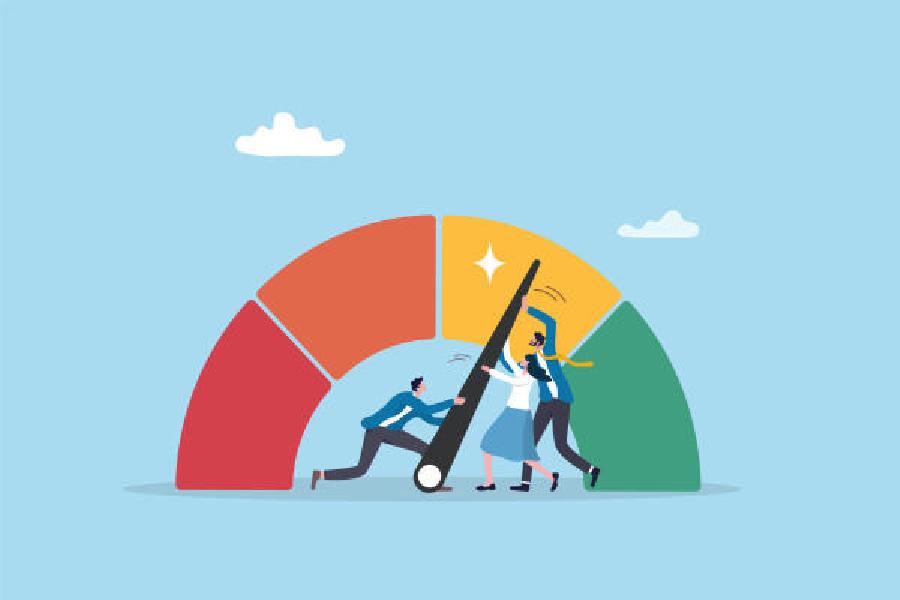There is a magical three-digit number that holds the key to your financial well-being. It shows how well you manage your financial life and defines your repayment reliability to lenders. That’s your credit score. Like most things in life, the credit score, too, needs to be earned. The better your score, the better your financial habits and the more likely you are to get more credit. If you are starting on a credit journey, then read on to know what you can do to build an enviable credit score in 12 months.
The first 12 months
Those first 12 months after taking your first credit are the most crucial ones. Bureaus track the new borrowers very closely because they have no other data to fall back on. Therefore, your early repayment behaviour weighs heavily on your credit score. For instance, one late EMI on a starter loan can drop your initial score by 100+ points, while consistent on-time payments for six months can move you from “No Score” to 700+.
Start with the right product
Begin small and safe instead of starting with a big loan. As a new borrower, you may not qualify for a large personal loan or high-limit card. It is wiser to start with small repayments you can handle consistently before moving to larger ones.
Start with beginner-friendly products, such as a secured credit card backed by a fixed deposit. Use it regularly for essentials like groceries or bills, and clear dues in full. If you use it responsibly, then within a year, you can create a strong repayment track record and lift your score into the 720–750 range. Starting with a secured credit card can also help you upgrade your card over time, so you have the right product for your needs as your credit age grows.
Credit utilisation
Your credit utilisation is the ratio of the credit you use to the total credit available to you. If your secured credit card has a limit of ₹50,000, try restricting your spends to ₹15,000, or 30 per cent of your credit limit. It is fine to occasionally use 80–100 per cent of the limit, but as a practice keep it under 30 per cent. Consistently high utilisation signals poor planning and risk and can affect your credit score.
Power of timely payments
All credit bureaus have their own algorithm and assign different weightage to different factors. But no matter the credit bureau, your repayment history is the single most important factor in your credit score. On-time payments account for an over third of your score.
A single late payment, regardless of the amount, can drag your score down by 100 points or more and keep it there for months. Typically, it may take as much as three to four quarters to recover from one delayed payment. For new borrowers, the impact may be even sharper due to the absence of a long track record to balance mistakes. So make sure you pay every bill on or before the due date. Consistency is the fastest way to establish trust and a strong score quickly.
Mix matters, but go slow!
Lenders like to see how you handle different types of credit. Having a healthy mix of revolving credit (like credit cards) and instalment loans (like personal or consumer durable loans) and secured loans (like auto or home loans) strengthens your profile.
However, take your time to build your portfolio. Each application results in a “hard enquiry”. If you apply for multiple loans in quick succession, it will result in several back-to-back “hard enquiries”, creating a perception of you being credit hungry and drag your score down. Instead, add products gradually. Start with a secured card before moving on to a small EMI loan after six months and maybe a vehicle loan down the year. This builds credibility without appearing risky.
Monitor your score
Check your credit report for errors every quarter. Make sure all your ongoing and closed loans reflect accurately. Verify repayment dates, personal details and that no unauthorised accounts are listed. A loan wrongly shown as unpaid or an old account still marked active can hurt your score.
For new borrowers with thin history such mistakes can be especially damaging. So, check your report every quarter and raise a dispute immediately when you spot an error.
Conclusion
There are no shortcuts to building a good credit history and score. It is about steady, disciplined behaviour. Use credit lightly, pay on time, track your reports and don’t overapply. In 12 months, you can move from having no score to a healthy 730+, setting yourself up for easier loan approvals, lower interest rates and greater financial freedom.
The author is CEO of Bankbazaar.com











